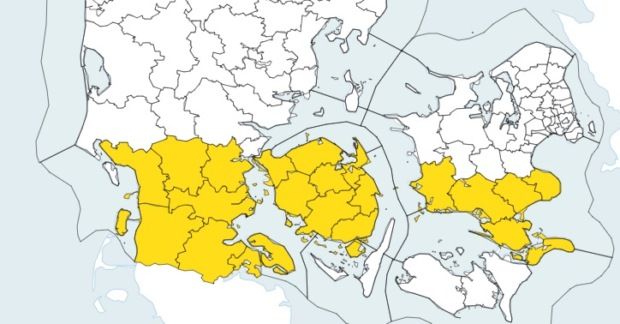News
Why people walk on thin ice: Culprits tend to trust their instincts over the authorities, explains expert
This article is more than 4 years old.
DMI has issued a warning of potentially heavy snow falls and drifts up until Wednesday, with the ice days expected to last until at least the weekend

It’s not about what you can see, it’s about the signs (photo: Pixabay)
Police fined 18 people in Copenhagen over the weekend after they ventured out on to frozen water spots – chiefly the famous Lakes in the centre of the capital.
The standard fine in such cases is 1,000 kroner. Police in Aarhus reported similar cases, and even some involving parents pushing prams.
Meanwhile, an Armed Services rescue helicopter was required to help two 19-year-olds who had moved too far out across the ice on the island of Skarresø near Jyderup in central Zealand.
Walking on the ice is only permitted once the local municipality has erected signs saying it is so.
Ice strollers know best!
To most of the population, it seems incredulous that people can be so foolish, given that the current cold spell only started in earnest last Thursday.
Anders Colding-Jørgensen, an expert on behavioral psychology at the University of Copenhagen, told DR the offenders are not ignorant, but simply won over by what they see before them.
“Most people are well aware the police warn against going out on the ice. But when they themselves are standing by the ice and can see that it is apparently thick enough and safe, it trumps what one has generally been told,” he explained.
“Human psychology tends to believe that accidents are always something that happens to others. Furthermore, few people know of examples where people have drowned under the ice. This means you feel you can assess the situation better than the authorities.”
Ice days to continue until weekend
The cold spell, with ice days up to and including Friday, will continue for at least another week.

Wind speeds are expected to each 11 m/s on certain days (photo: screenshot from DMI)
DMI has issued a weather warning for a fair proportion of the country: a wide band that starts around 50 km south of the capital region and heads towards the German border (see below).
Potentially heavy snowfall, of around 10-25 cm, along with large snow drifts, are on the cards in southern Jutland, Funen and the southern half of Zealand until Wednesday.
Bornholm will most probably get the worst of the snowfall, with 25 cm anticipated.

There is the smallest chance that this could skip north a bit and hit the capital region (image: DMI)










































